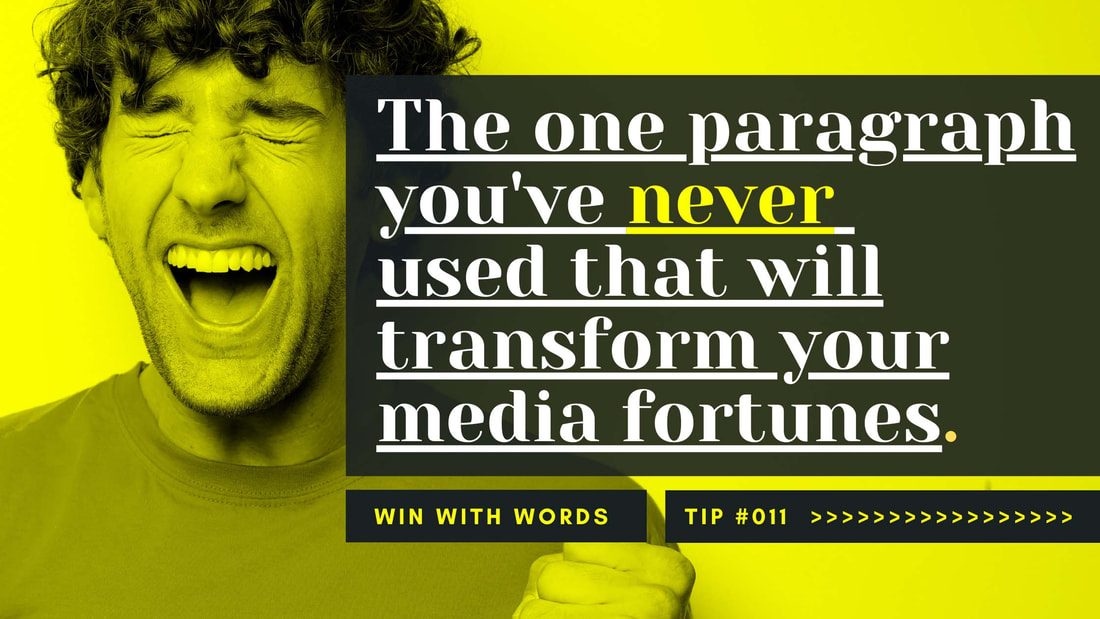|
It's official, podcasts are a PR goldmine. 41% of British people listen to a podcast on at least a monthly basis, meaning you have a tantalising and relatively barrier-less opportunity to introduce new audiences to your brand. Better still, thanks to our Ego Delay Technique (EDT), we're placing our clients on the most listened-to and respected shows every week. Now it's your turn to leverage the Ego Delay Technique in your PR pitches. But first, here's how we developed EDT Long before instagram made 'life quotes' as popular as breathing, I watched three lawyers talking in the ladies' toilets. What one of them said left me speechless. With unshakable confidence, she leaned into her young apprentice and said: "You can never rely on someone's interest in your affairs, but one thing you can guarantee, is their investment in their own." Awed by her wisdom, I wasn't surprised by it, after all, she was a character created by my favourite TV producer of all time: the multi award-winning genius David E. Kelley. I first saw that bathroom scene — in U.S drama series Boston Legal — over twenty years ago, yet to this day, it plays in my thoughts each time I pitch clients for podcasts, TV, radio, print or online. Why? Because when I reach-out to these media publishers, that quote directly influences how I craft my opening paragraph. Lets see how. Here's how NOT to begin your pitch Let's imagine you want to be a guest on your favourite industry podcast. Maybe you're an expert in your field and you have unique insights or valuable experiences to share. So, armed with the relevant email address, you open your laptop and start typing. Your opening paragraph probably looks something like this, doesn't it? "Hi Aneka, I'm Adam, a UX designer. I have over ten years' of industry experience, and have been lucky to work for some of the biggest companies. Through these roles I have [insert 'me, me me credentials' here] Here's how you SHOULD begin your pitch "Hi Aneka, Your observation about empathy in yesterday's episode was a revelation. The way you addressed the long-term perils of an 'empathy deficit' was enlightened. Your first guest, Hannah, made an interesting point about using official and 'unofficial' behavioural study to build intuitive user interfaces. When she said: "better observe humans to better serve humans" I smiled like kid with cake. So simple, yet so astute. Thank you for this brilliant series! I'm Adam, a UX designer. I have over ten years' of industry experience, and have been lucky to work for some of the biggest companies. Through these roles I have [insert 'me, me, me credentials' here] The 'Ego Delay Technique' explained Last month, I read 31 PR pitches from a range of entrepreneurs, start-ups and growing businesses that commissioned our specialist PR training. Of the 31 pitches I read, how many do you think opened with a series of what I call 'me, me, me credentials'? 10? 20? 30? No. Actually, it was 24. Yes, 24 — a worrying 77% of the ambitious brands I spent time with last month had an unfortunate outpouring of ego in their opening paragraph to podcasts and other media publishers. No surprise there, of course, because feeling significant is one of the most, if not the most powerful human driver. Author and researcher Zach Mercurio puts it nicely: "Feeling significant is a basic human desire and a critical factor for mental, emotional, and physical well-being in life, school, and work." But why? Why is our thirst for significance so overwhelming that we send 'me, me, me' emails to strangers? Well, studies show that experiencing 'mattering' (the feeling that we’re a significant part of the world around us) increases our sense of self-worth, and motivation. It can also reduce the risk of depression and anxiety. Feeling significant is also found to increase serotonin levels, sometimes called the “confidence molecule” that influences overall mood. In short; citing how good we are makes us feel good. Obviously. My question to you, then, is: would it not be a smarter move to open your unsolicited pitch in a way that gives the recipient a feeling of significance? Let's be frank, for all intents and purposes, us humans are biologically programmed to enjoy feeling good about ourselves, regardless of who it is making us feel good. How do you make your pitch recipient feel good? Studies have identified 3 components of making someone feel valued:
To cultivate 'mattering', then, ensure people feel noticed, important, and needed. An email pitch that opens with your credentials accomplishes a grand total of none of these outcomes. Oh well, on the bright side, at least you feel good about you! Conclusion: I feel slight discomfort writing this blog post, because come on... it's the most basic human relations tip imaginable. I'm forever stunned, though, by how overlooked it is. When reaching out to your target podcast, for example, delay your craving for significance until paragraph #2, and instead, dedicate paragraph #1 to your recipient's need to feel valued. In my book, making others feel good about themselves is not only your obligation as a decent human being, but also, thanks to the Rule of Reciprocity (a principle that suggests people respond in kind to nice behaviour), it will bring you much closer to that podcast interview you covet. Four weeks ago, we showed you the real reason journalists keep ignoring your press releases, well now, you know why podcasts are ignoring you, too. PS: (Of the 31 pitches we audited/re-wrote last month, so far, 59% have secured the targeted interview or guest feature. Isn't it remarkable what you pick-up in the ladies' toilets?)  NEED HELP WITH YOUR WRITING? WE HELP BUSINESSES BY PROVIDING:
To better communicate with your audience, email us on [email protected] or click here for FREE access to our other excessively brilliant writing & communications articles.
0 Comments
Leave a Reply. |
Categories
All
Archives
June 2024
|

 RSS Feed
RSS Feed